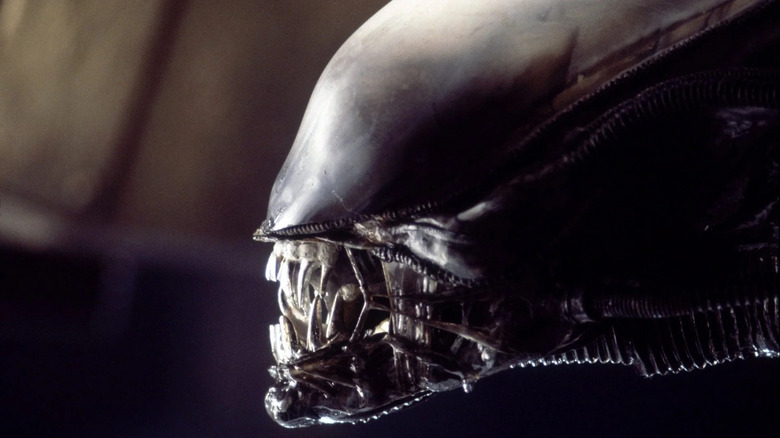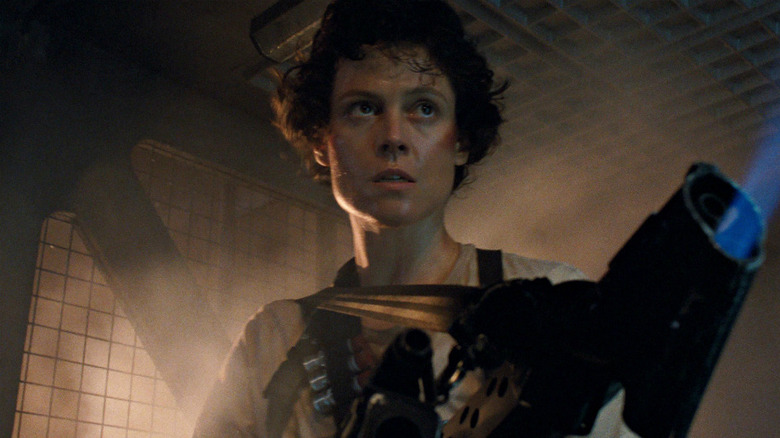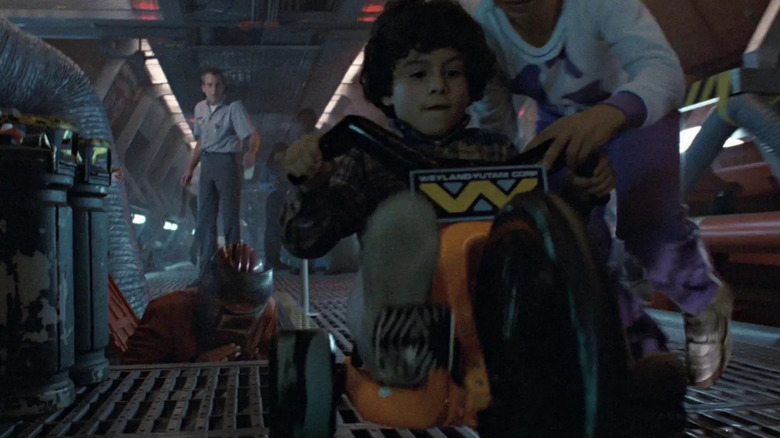Noah Hawley Wants His Alien Series To Return To The Franchise's Roots
Noah Hawley's upcoming "Alien" series will be borrowing more than just the title from the original film. Hailing from FX, the small-screen debut of the seminal franchise has been in development for quite some time. Instead of following suit with the (many) "Alien" sequels, the Hawley-created show will tell a story set in the same universe years removed from the events of the 1979 movie. Despite the lack of returning characters and familiar faces, Hawley is determined to extract what made "Alien" so special in the first place while exploring new ground.
Hawley is no stranger to recapturing the essence of genre-defining films in original projects. With "Fargo" under his belt, he has proved to understand what makes classic films click on a thematic level while utilizing completely new settings and characters. Re-contextualizing the world of "Alien" in his upcoming series may not only reinvigorate the franchise once more, but deliver a wholly unique experience in the process.
Taking what works
In an interview with IndieWire, FX chairman John Landgraf talked shop about the mysterious project, emphasizing his and Hawley's desire to strip back the "Alien" dressing and use the bones as a foundation for the television series:
"I'm a big fan of "Alien" and "Aliens" and I remember watching both of them in the theater and how shockingly original and surprising each of them was in its own way. And so, similar to his approach to "Fargo," Noah decided to not take Ripley or any character from Alien – except perhaps the xenomorph itself – but go back and figure out what made the franchise so great and so durable in the first place and see if he could find an experience that felt like walking into a theater and seeing one of those first two movies, where you get caught off guard."
As Landgraf alludes to here, a part of what makes the first two films so special is their distinct personalities. "Alien" is a claustrophobic horror film that uses a singular antagonist to wreak havoc, while "Aliens" opts to lean into the action with gun-slinging heroes against an army of xenomorphs. Moreover, the James Cameron-directed sequel understood that injecting new elements instead of retreading the exact same ground was the key to shocking the audience. Similarly, the "Alien" series will forge its own path, extracting what worked and injecting it with Hawley's unique creative vision.
In with the new
Though details remain scarce about the plot, it's been confirmed that "Alien" will take place on earth, instead of space. A departure from the typical formula of the franchise, Hawley seeks to bring the thematic elements of the "Alien" mythology into more grounded territory. Moreover, the corporate entity that casts a shadow over the original films, Weyland-Yutani Coroporation, won't have a prominent presence in the series. Instead, Hawley intends to create a new one in its place. Landgraf elaborated:
"The "Alien" cinematic universe is that it's a world that's sort of dominated by large corporate entities, and Weyland-Yutani has been an important component of the movies. There are references to that corporation in this show. But it actually takes place in the territory of a different corporation that Noah invented."
Introducing a brand new capitalistic system to critique may seem retroactive, considering Weyland-Yutani was created by Scott for the same purpose. However, Hawley smartly decides to untether his project of some pretty convoluted lore, allowing for more creative freedom with the details. Setting it on earth allows us to get a closer look at the grip these parasitic corporations have on society, arguably one of the most interesting aspects of the entire franchise.
If Hawley is able to combine all of that with the existential arrival of the xenomorph, "Alien" may just be able to live up to expectations. After all, a similar approach was taken with "Prey," and we already know how that turned out.


